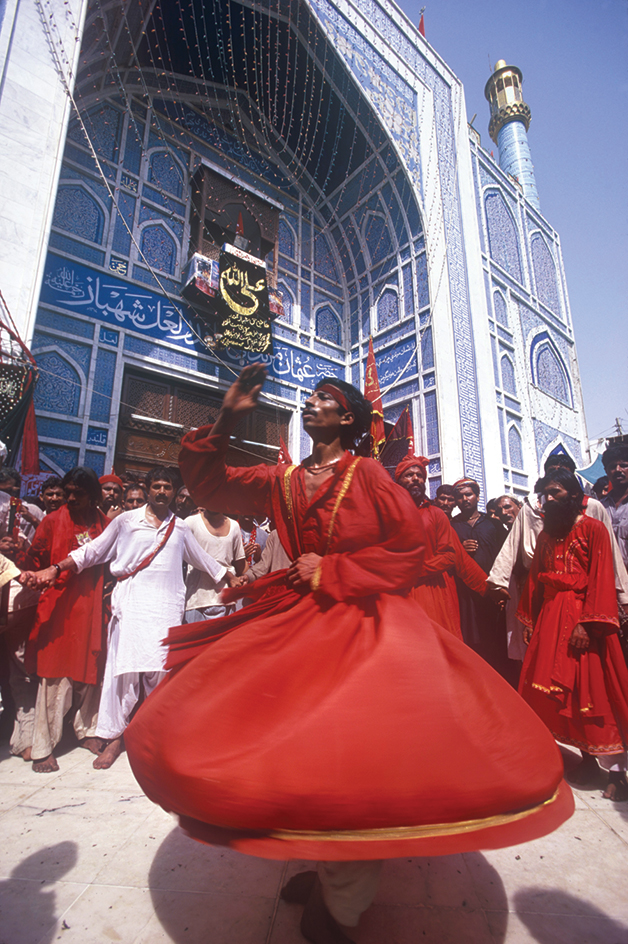Sufism, << SOO fihz uhm, >> is a term that describes a process of seeking closeness to God. Most Sufis are Muslims. The name Sufi comes from the Arabic word suf, meaning wool. It suggests a turning away from luxury and worldly temptations. Tasawwuf is the Arabic word that means Sufism or being a Sufi. Sufism is difficult to define exactly, because it varies among Sufis and from place to place.

Sufism originated in early Islamic times, during the A.D. 600’s. Early Sufis in what are now Iran and Iraq believed that the essence of Sufism lay partly in the ideal qualities of the Prophet Muhammad, the founder of Islam. According to the early Sufis, these ideal qualities included Muhammad’s compassion and his close association with his followers. Early Sufis also placed importance upon the mystical sayings of the Qur`an, the holy book of Islam. Such sayings deal with ways of achieving spiritual insight. Some early Sufis stressed self-denial—that is, the sacrifice of their own desires for worldly things. Others practiced meditation and described their spiritual experiences.
Many early Sufis came from craftworker backgrounds. They criticized the worldly excesses of the caliphs, rulers of the Islamic Empire from the 600’s to the 1200’s. Two of the most famous Sufis of this period were from Persia (now Iran): Rabi`a of Basra, who died in 801, and al-Hallaj, executed in 922. Rabi`a, a woman, declared that love of God was the highest form of worship. Al-Hallaj, among others, became controversial for publicly announcing he was united with God.
Beginning in the 1100’s, communities formed around Sufi teachers. Sufi religious centers spread throughout the Middle East, southern and central Asia, northern Africa, Spain, and southeastern Europe. The tombs of Sufi saints became centers of pilgrimages (religious journeys).
In the 1100’s and 1200’s, such Sufis as al-Ghazali from Persia and Ibn `Arabi from Andalusia (now part of southern Spain) became known for their theological and philosophical teachings. Such teachings are concerned with God, the nature of truth and knowledge, and how best to live. Other Sufis of this period, such as the Persian Rumi, became famous for their poetry. Sufi practices included chanting the many names of God from the Qur’ān; reciting poetry to music; and dancing. One famous group of Sufis today is called the “whirling dervishes” because they perform a whirling dance as part of their worship. Modern secular figures in Muslim countries and conservative religious authorities have criticized Sufism. However, major Sufi shrines in such places as Touba, Senegal, and Ajmer, India, continue to attract many pilgrims.
